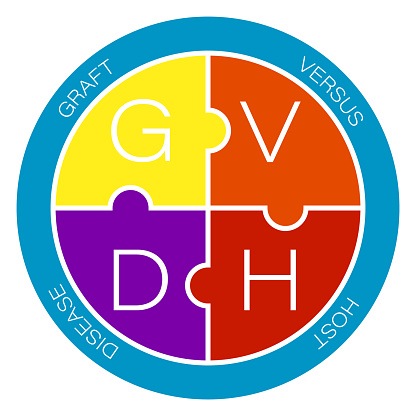
Low-intensity immunosuppressive therapy for chronic graft-versus-host disease (cGVHD) is effective, according to a study presented at the 2021 TCT Meetings of ASTCT & CIBMTR Digital Experience.
In this retrospective study, researchers assessed 54 patients with cGVHD who underwent allogeneic hematopoietic cell transplantation. Subsequently, they analyzed any cases who were treated with low-intensity immunosuppressive therapy, which was defined as an escalation or a restart of calcineurin inhibitor, prednisolone <0.25 mg/kg, or both. The primary endpoint was failure-free survival (FFS), which was defined as the absence of treatment change, non-relapse mortality (NRM), and recurrent malignancy.
According to the study results, mild, moderate, and severe cGVHD was observed in 12, 34, and eight patients, respectively. FFS ratio at 48 months following initial therapy was 51.9%. Incidence of treatment change, relapse, and NRM was the reason of treatment failure in 40.7%, 3.7%, and 3.7% of cases, respectively. Risk factors for treatment failure, which were discerned using Cox models, were female to male transplantation (hazard ratio [HR], 2.6; 95% confidence interval [CI], 1.29-25.49; P=0.008) and the onset of initial treatment later than 12 months after transplantation (HR, 2.16; 95% CI, 1.05-2.16; P= 0.036).
Read more at: https://tct.confex.com/tct/2021/meetingapp.cgi/Paper/16933
Yoshimura K, et al. Low-Dose Immunosuppressants for the Treatment of Chronic Graft-Versus-Host Disease. Published for the 2021 TCT Meetings of ASTCT & CIBMTR Digital Experience; February 8-12, 2021.







 © 2025 Mashup Media, LLC, a Formedics Property. All Rights Reserved.
© 2025 Mashup Media, LLC, a Formedics Property. All Rights Reserved.